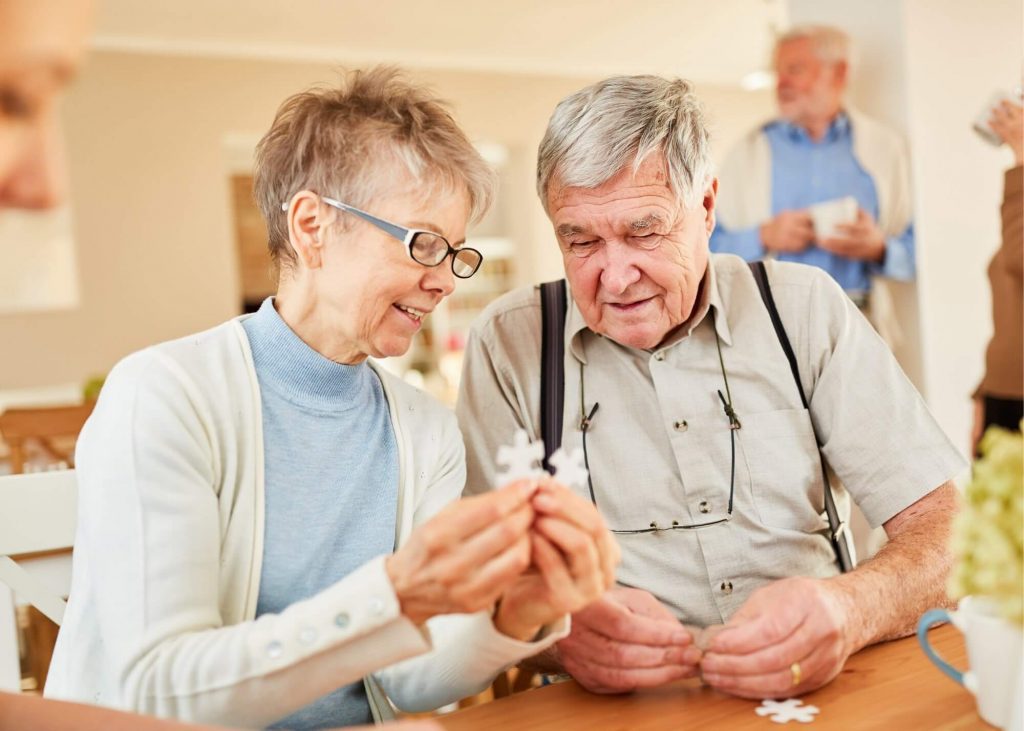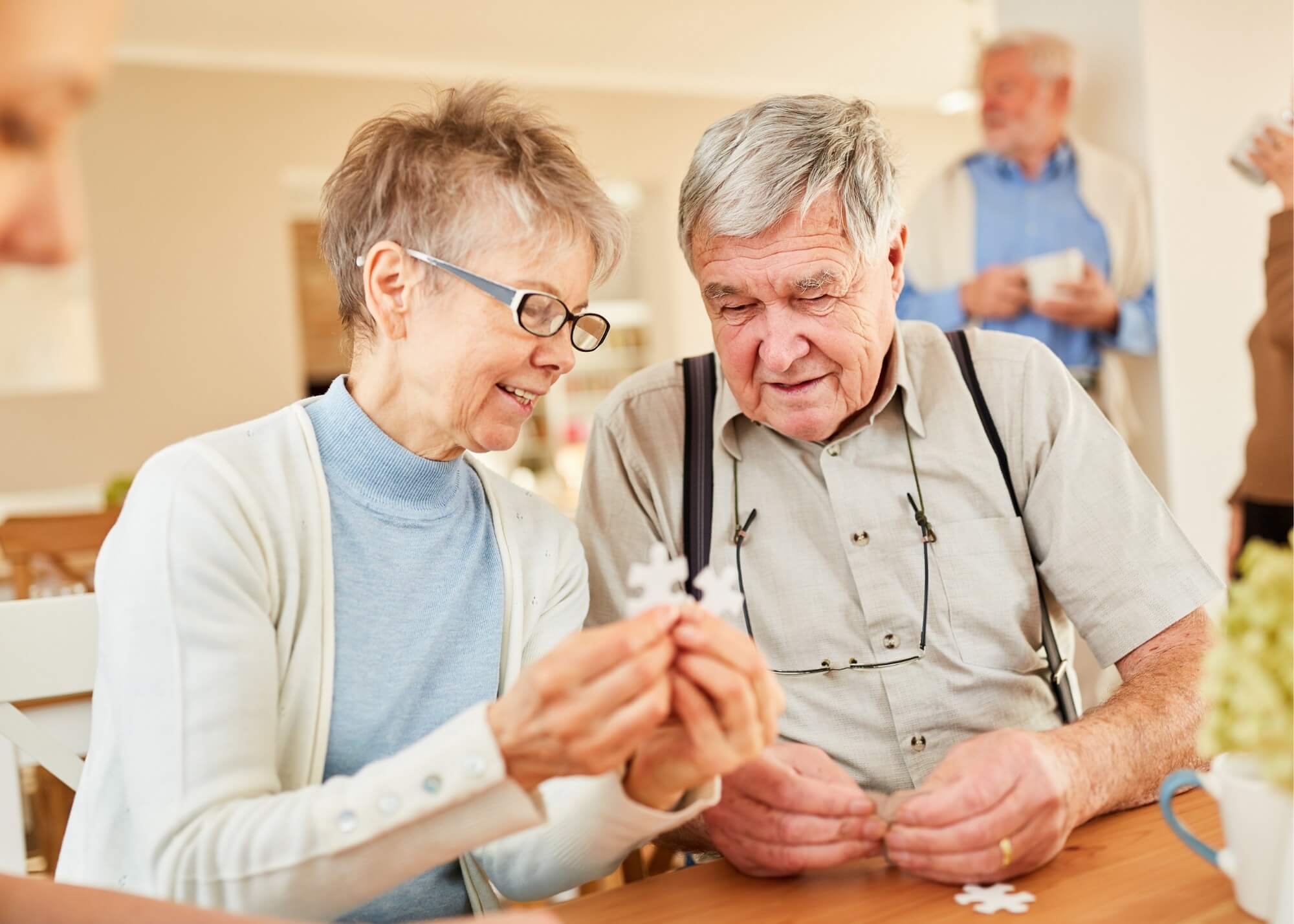6 Ways to Make Homes and Public Spaces Dementia-Accessible
Dementia has a profound effect on a person’s life and mobility. Since the disease involves memory loss as well as deficits in executive function and other senses, moving through spaces introduces new risks.
But, there are a few home modifications—some quite simple—that can make living spaces safer and easier to navigate for people living with dementia.
1. The basics: decluttering and ensuring spaces are clear and usable
The Alzheimer’s Society of Canada provides a blueprint for designing doors, floors and everything in between. Clearing out any clutter and making sure that rooms have clear and unambiguous uses are important. When possible, that means making sure all the doors are labeled and the furniture inside matches the room.
For door handles, lever handles are recommended in lieu of knobs as they are easier to use. It is also recommended to have neutral, pattern-less flooring for good spatial orientation. Carpet flooring has an advantage because of its ability to absorb noise, and can reduce confusion and stimulation.
2. Good directions: Concise signage
To make up for navigational impairments, signs should be placed to help direct a person to different rooms. Using a yellow background with black text makes it easier to read. The signs would list different rooms in a building or space with an adjacent arrow to provide direction.
3. Fall prevention: elevators, ramps and staircases
According to a study published in 2012, people with any kind of executive functioning impairment—even a subtle one—are more than 40 percent more likely to experience injury for any fall.
For people with a more serious condition or diagnosis, the risk of injury from falls is almost doubled. That makes staircases a potential hazard. Ramps, elevators and handrails that have good color-contrast with the walls can reduce this risk.
4. Bathroom safety: Improving accessibility
UK’s Alzheimer’s Society provides practical tips for making bathrooms easier and safer to use:
- Remove clutter
- Keep commonly used items like toothpaste or toilet paper within reach
- Towels and toilet rolls should contrast with the wall or holder
- Non-slip mats in the bath or shower will also help prevent falls
- Place a sign with a picture of a toilet and the word “Toilet” on the door
- Leave the bathroom light on at night so it is easier to find
- Use a flood prevention plug in the sink and bath
- Ensure that the doors can be unlocked from the outside in case of a fall or other emergency
5. Kitchen safety: Spotting fire hazards and other risks
Accidents are prone to happen in the kitchen: Grant Warner, who specializes in designing senior living spaces for the architectural firm HKS, said people could sometimes leave the stoves on for hours at a time, filling the house with smoke and igniting fires. Warner recommended looking into smart alarm systems, and getting stoves and microwaves with automatic shut-off technology.
Switching to an electric kettle that turns off automatically when the water boils or dividing the task between caregiver and the person under their care are good options.

6. Dementia-specific lighting considerations
Vision problems grow more common with aging, and because dementia can affect parts of the brain that handle visual information, it often compounds age-related vision impairment. This can mean depth perception issues, a smaller field of vision, diminished tolerance of glare, and difficulty distinguishing one object from another.
Even and consistent lighting throughout a person’s living space—no dark corners, closets or hallways, and no glares or high-contrast areas—should not only help them navigate their surroundings more easily, it can also ease dementia-related confusion, anxiety and aggression.
Broader dementia awareness
The Netherlands has embarked on a nationwide dementia awareness initiative to make the entire experience of visiting businesses more dementia-inclusive—not just in terms of design, but in terms of attitude, too. Employees are trained on the signs that someone may have dementia—such as coming to the store everyday and buying a large bag of sugar.
“Our goal is to make people with dementia participate as long as they can in the society,” Jarina Rombouts—a spokesperson for the initiative—told Being Patient. “It helps if people recognize the signals of dementia, and know how to behave to people with dementia.”
The largest grocery chain in the Netherlands, Albert Heijn, has now held more than 60 in-person training sessions and continues to offer online training for their employees.
Dementia accessibility benefits everyone because it increases awareness of the issue, makes spaces easier to navigate for people who may have other impairments and helps those affected by cognitive impairment to navigate the world a little more easily.
To learn about clinical trials of new medications that aim to modify the pathology of Alzheimer’s disease, call Charter Research at 407-337-1000 (Orlando) or 352-775-1000 (The Villages).
